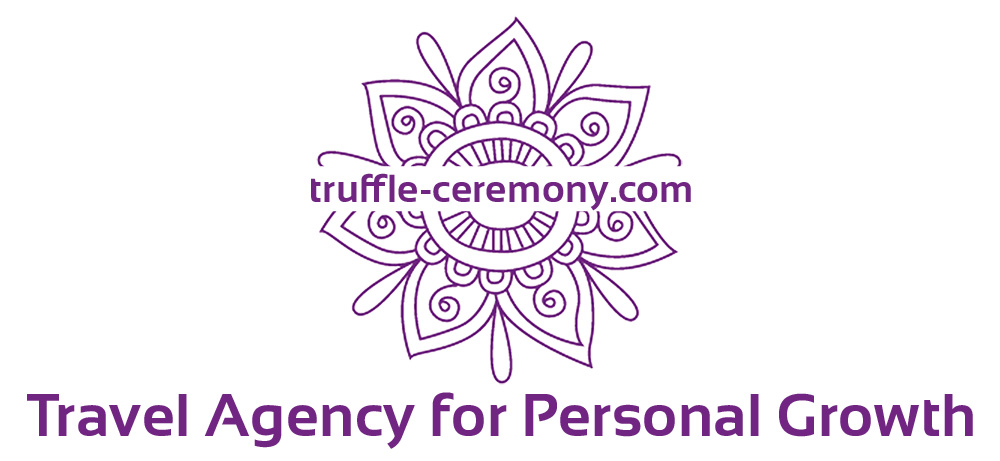Home | Neurotransmitter: enables communication in the brain
Neurotransmitter: enables communication in the brain
For when you really want to improve your life
The human brain is a complex network of billions of nerve cells, also known as neurons. These neurons communicate with each other through chemicals known as neurotransmitters. Neurotransmitters play a crucial role in both cognitive functions and general functions in the body.
They influence mood, memory, motor control, and even autonomic processes such as heart rate and breathing. In this article, we discuss the main neurotransmitters, their action within the central nervous system, and the influence truffles can have on it.
What is a neurotransmitter?
Neurotransmitters are chemicals responsible for communication between sensory nerve cells in our nervous system. They help transmit nerve impulses between neurons, effectively spreading information throughout the body.
When a neuron receives an electrical signal, neurotransmitters are released into the synapse (the space between two neurons). This chemical signal can then bind to receptors on the receiving cell, leading to an activating or inhibitory response.
Different types of neurotransmitters
There are several types of major neurotransmitters, each of which has a specific function within the nervous system. The major neurotransmitters can be divided into excitatory (stimulatory) and inhibitory neurotransmitters.
1. Dopamine
Dopamine plays an important role in motivation, reward and exercise. It is often associated with pleasure and reward, as well as motor control. Dopamine imbalance can lead to conditions such as Parkinson’s disease and addiction problems.
2. Serotonin
Serotonin regulates mood, sleep, appetite and cognitive functions. It is often considered the “feel-good” neurotransmitter and is involved in controlling anxiety and depression. Serotonin deficiency is associated with depressive feelings and mood disorders.
3. Gamma-aminobutyric acid (GABA).
GABA is the main inhibitory neurotransmitter in the central nervous system. It helps reduce excessive neuronal activity, leading to relaxation and reduction of anxiety. Medications such as benzodiazepines enhance the action of GABA and are often used in anxiety disorders.
4. Glutamate
Glutamate is the most important excitatory neurotransmitter and plays a crucial role in the learning and memory process. However, excess glutamate can be neurotoxic and contribute to neurodegenerative diseases such as Alzheimer’s disease.
5. Acetylcholine
Acetylcholine is involved in muscle contractions, attention and memory. It plays a role in both the central nervous system and the peripheral nervous system. Acetylcholine deficiency is associated with cognitive decline and Alzheimer’s disease.
6. Norepinephrine (norepinephrine).
This neurotransmitter is closely associated with the sympathetic nervous system and regulates the “fight-or-flight” response. Norepinephrine plays an important role in alertness, focus and stress responses.
7. Endorphins
Endorphins are often referred to as the body’s natural painkillers. They reduce pain perception and can promote feelings of happiness and relaxation.
The influence of truffles on neurotransmitters
Truffles, and particularly the psychoactive substances they contain, such as psilocybin and psilocin, have a profound effect on various neurotransmitter systems in the brain. The effects of these substances are particularly noticeable in the way they affect communication between nerve cells.
Psilocybin and serotonin
Psilocybin, the active ingredient in truffles, is converted to psilocin in the body. Psilocin has a structure very similar to serotonin, which allows it to bind to serotonin receptors, especially the 5-HT2A receptors. This leads to increased serotonin activity and can have mood-enhancing effects. This explains why truffles can induce feelings of connection, happiness and introspection.

Dopamine and the role of truffles
In addition to serotonin, psilocin also affects the dopamine system. The release of dopamine can be enhanced by truffles, which can contribute to an increased sense of motivation and pleasure during a trip. This may explain why people often experience an increased sense of well-being and motivation after a psychedelic experience.
GABA and glutamate balance.
Research suggests that psychedelic substances such as psilocin also affect the balance between GABA and glutamate. By increasing the release of glutamate in certain brain regions, truffles may lead to increased neural plasticity, which can enhance learning and memory. This may be a possible explanation for the increased creativity and new perspectives that many people report after using truffles.
Influence on the sympathetic nervous system
Truffles can also affect the autonomic nervous system, particularly the sympathetic nervous system. This can manifest itself in physical reactions such as increased heart rate, pupil dilation and a feeling of euphoria. These effects are usually experienced temporarily and disappear once the psychedelic experience wears off.
Therapeutic potency of truffles
Because of their profound effect on neurotransmitters, truffles and other psychedelics are increasingly being investigated as potential treatments for mental disorders. Studies show that psilocybin can be effective in treating depression, anxiety disorders and post-traumatic stress disorder (PTSD). Increased serotonin activity and neural plasticity play a crucial role here.
Some benefits of psilocybin-based therapies include:
- Improved mood and reduction of depressive symptoms
- Increase in cognitive flexibility and creativity
- Increased sense of connection and empathy
- Long-lasting positive effects after a single session

Want to download the eBook on the Program for Transformation for free?
Fill in your details here and instantly download the eBook on the Program for Transformation from Truffle-ceremony.com
Truffle-ceremony.com: your guide to inner transformation
Truffle-ceremony.com is the specialist in guided truffle ceremonies, in which the power of psilocybin is harnessed for profound personal growth and transformation. Our expert facilitators provide a safe and trusted environment in which participants can take their inner journey in a conscious and respectful manner.
A truffle ceremony can help you release negative patterns, strengthen self-insight and create a deep connection with yourself and the world around you. Whether you are looking for spiritual depth, emotional healing or simply a unique experience of consciousness, Truffle-ceremony.com offers professional and loving guidance to maximize your experience. Dare to take the journey within and discover the transformative power of truffles under the guidance of experienced experts!
Neurotransmitters play a crucial role in communication between nerve cells and are essential for various functions in the body, including mood, sleep, appetite and cognitive functions. The major neurotransmitters, such as dopamine, serotonin and GABA, regulate the functioning of the central nervous system and affect how we feel and function.
Truffles, particularly the psychoactive compound psilocybin, interact uniquely with these neurotransmitters. By modulating serotonin and dopamine activity, truffles can have profound effects on the brain and are increasingly being investigated as a therapeutic agent for mental health problems. Although further research is needed, existing studies suggest that truffles may be a promising natural tool for improving mental health and well-being.
By better understanding how neurotransmitters work and how psychedelic substances such as truffles can affect them, we can develop new perspectives for treating neurological and psychological disorders. This opens the door to innovative therapies and a deeper understanding of the mysteries of the brain.
Subscribe to our newsletter now
Our newsletter is sent out up to 8 times a year.

